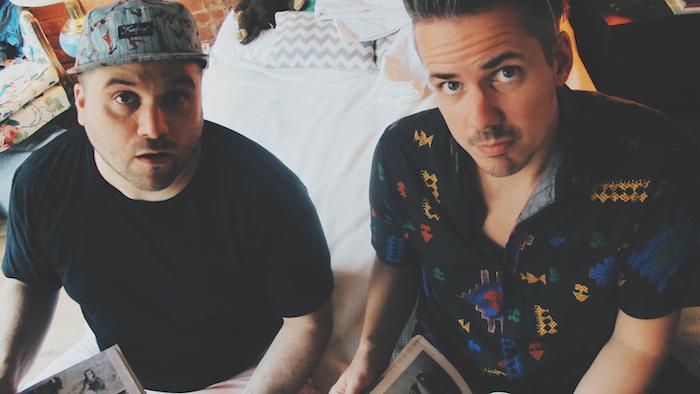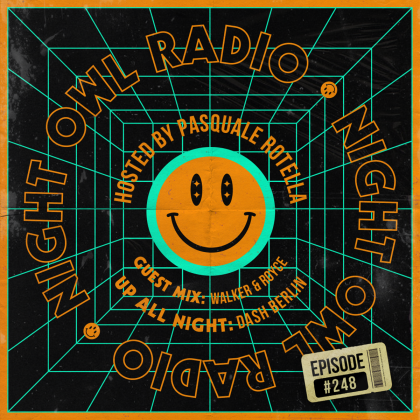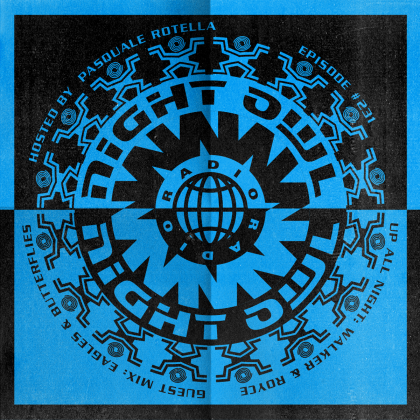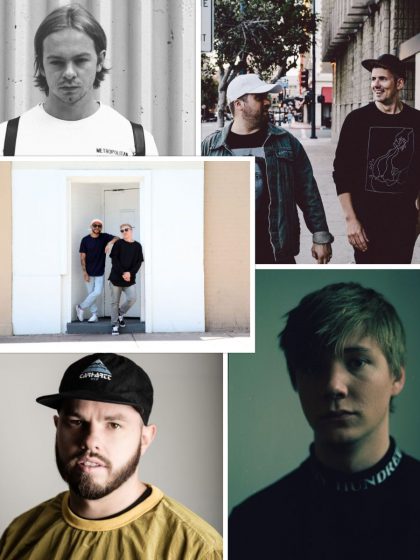Walker & Royce Are the NYC House Duo You’ve Been Missing
Upcoming Event
The New York City-based duo of Sam Walker and Gavin Royce, professionally known as Walker & Royce, has weathered the storm of interest in deep house over the past five years. Since releasing their 2014 single “Sister,” dubbed an Essential New Tune by none other than BBC Radio 1’s Pete Tong, they’ve reached another level of renown. They’ve since celebrated various moments of acclaim via the My Dream EP on Moda Black and their most recent My Stop EP on Pets Recordings—the latter of which has already received major support from Shadow Child, Doorly, Maxxi Soundsystem, Friend Within, Groove Armada, Hannah Wants, and many more tastemakers. Their forthcoming remix—of Johnny Mikes’ “Darkness Everyday,” featuring Michael B—is a grooving deep house cut, out October 8 on Lower East.

A seasoned duo with global travel, Walker & Royce has rapidly reached a level of raised awareness and a position of prominence and critical reverence. We chatted with the group regarding their collaborative process and their thoughts about the future of house music.
You’ve just released the My Stop and My Dream EPs. What did you attempt to highlight in your growth as producers?
Sam Walker: We’re increasingly trying to make crazier stuff, but still keep that house groove to it. As house music progresses, you have to make weirder stuff to break new ground; then after a while, it’s not weird anymore.
Gavin Royce: In house music, things will trend, and then people sit on it, and songs begin to sound like other songs. That bothers us, because we’re trying to move forward. We’re not trying to repeat ourselves.
Walker: We’re really not trying to use the same bass sound again and again. In a lot of musical genres, you hear people using the same sounds. In house, the bassline makes the track, so we never try to use the same bass sound twice. Some of our songs will have a similar bass texture, but we try to make it different every single time. It helps every song sound really fresh.
When working as a tandem, where does the balance lie between each of you? What are the benefits of working as a unit?
Royce: [Working as a tandem] is good; it makes things fun. Sam is in the driver’s seat a lot when it comes to production, so he’s more of the engineer. Sometimes he might work on a track for a while and not quite know where to go with it.
Walker: If I’m putting tracks together by myself and I’m taking it to Gavin for a collaboration, I think about it differently. When you collaborate with somebody, the collaborative aspect comes from channeling the other person. I’ll do things I would never do [by myself], and Gavin will pick out parts and change the arrangement in ways I would’ve never done. Sometimes a producer will think something is much better than it is or overwork a track. It’s a lot more than having a second set of ears on something. You think of something from another person’s point of view—“What would they like?” “How are they approaching it?”—and let things be rearranged.
“The competition to get people moving consistently is there.”
With what feels like a ton of newer producers getting excited about house, how do the two of you retain individuality in your productions with so many concepts now floating around?
Walker: Two years ago, when we would sit down and write a track, I’d have this thought of, “What are we going to do?” Now I don’t have that anymore. Now I feel like we just write stuff. I feel very free about our whole creative process and how we write stuff. It’s not because I’m afraid of how people will judge them; I’m totally afraid of that. It’s more like I’m not afraid that we’re trying to write into a specific genre’s bucket. We’re not trying to write a very specific sort of thing. Some will say we should’ve never had to feel like that, and that’s true. But as a producer, you can do anything you want, so you need guidance and to be pointed in a direction. If you have too many options, it’s hard to pick a direction in which to go. Now I feel like we’re not ignoring the rest of house as much as we’re freed by the fact that we’ve found an overall vibe to give off with our music, instead of writing individual tracks and hoping people will like them. Now I want to write tracks that have a vibe.
Royce: One thing I think that’s happened with the rise in popularity of house is that the market got flooded. It’s become more difficult because it’s crowded, but it also makes people who are fans actually realize what is really good. The cream is rising.
What’s going into your DJ sets nowadays?
Royce: Our DJ set vibe is always changing. We definitely have focused our sound, but you have to be ready for anything. If something’s not working, you have to be able to think on your toes and switch something to try and get people dancing. As a DJ, I don’t want to just keep my head down and do what I want. What I want is for everyone to have fun and keep dancing. The competition to get people moving consistently is there. We’re always trying to be better.
You’ve mentioned UK audiences react to your music, and dance music in general, more immediately than US audiences on the dancefloors. Why do you think that is? What do you think can be done to change that as an issue?
Walker: It’s a condition of the drinking age. Also, the American musical market is more diverse and fragmented. Everyone has their own favorite type of music, and people are really into that type of music, except dance music. People love everything from heavy metal to classical. House music in the UK is a bit more accepted. Maybe the club scene there is different because there’s also a more tolerant attitude to drinking and drugs; it’s a sociological issue, for sure.
Royce: The age thing is important, too. I’ve noticed here it’s 21 to drink [and to enter a lot of clubs]. The people into the “cooler,” more underground style of house music are always in the 25-and-up age range. In London, we’ll play these warehouse parties where it’s 19-year-olds going insane. In America, 19-year-olds aren’t oftentimes listening to house. They’re instead at other parties listening to Miley Cyrus and Taylor Swift. American parties miss that young energy of getting on the floor and dancing all night long.
Follow Walker & Royce on Facebook | Twitter






